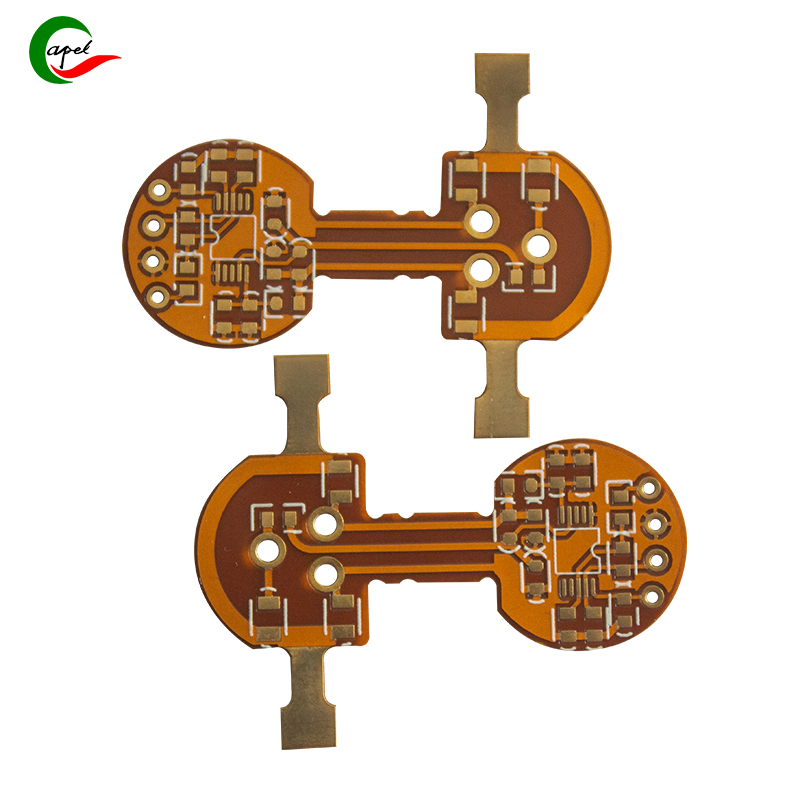In this blog post, we’ll take a deeper look at the electrical characteristics of flexible circuit boards, exploring how they differ from rigid boards and why they are preferred in certain applications.
Flexible circuit boards, also known as flexible PCBs or FPCs, are becoming increasingly popular in various industries due to their unique properties and numerous advantages. These flexible boards offer an excellent alternative to traditional rigid circuit boards, especially in applications requiring compact and lightweight electronic devices.
1. Flexibility and bending:
One of the main advantages of flexible circuit boards is their ability to bend and bend without losing functionality. Unlike rigid boards, which are brittle and can break under pressure, flexible PCBs are designed with materials that can withstand repeated bending. This flexibility is critical for applications that require boards to conform to specific shapes or fit into tight spaces. The electrical properties of flexible circuit boards ensure reliable performance even after thousands of bending cycles.
2. Impedance control:
Impedance is an important electrical characteristic that affects signal integrity in electronic circuits. Flexible circuit boards can have controlled impedance, ensuring accurate signal transmission without any distortion or loss. Through impedance control, flexible PCBs can be used in high-frequency applications such as RF and microwave circuits, where precise signal transmission is critical. This characteristic makes it ideal for applications such as wireless communications equipment and medical imaging equipment.
3. Miniaturization:
Flexible circuit boards have the advantage of miniaturization due to their thin and light nature. They can be manufactured with finer conductor widths and smaller component sizes, allowing the creation of highly compact electronic devices. This miniaturization capability is highly beneficial for space-constrained applications such as mobile phones, wearable devices, and aerospace technology. The electrical properties of flexible circuit boards ensure reliable and efficient operation of miniature components.
4. Resistant to vibration and shock:
Another noteworthy electrical property of flexible PCBs is their excellent resistance to vibration and shock. Their ability to absorb and dissipate mechanical stress makes them highly reliable in applications exposed to constant motion or harsh environments. Electronic systems in industries such as automotive, aerospace and defense often use flexible circuit boards because they can withstand harsh vibration and shock without compromising performance.
5.Temperature resistance:
Flexible circuit boards exhibit good temperature resistance and maintain their electrical performance even under extreme temperature conditions. This property makes them suitable for applications involving high or low temperatures, such as industrial machinery or military equipment. The materials used to manufacture flexible PCBs can withstand temperature fluctuations and prevent performance issues related to thermal stress.
6. Enhance signal integrity:
The electrical properties of flexible circuit boards help improve signal integrity, resulting in better overall performance. Low electrical losses, signal propagation control, and reduced parasitics are some of the factors that positively impact signal integrity. These aspects are critical for high-speed data transfer applications such as USB, HDMI and Ethernet interfaces. The ability to maintain signal integrity amidst the board’s inherent flexibility makes it a reliable choice for demanding electronic systems.
In summary
Flexible circuit boards have unique electrical properties that make them ideal for a variety of applications. Their flexibility and bendability allow them to adapt to different shapes and fit into tight spaces. Impedance control ensures accurate signal transmission, while miniaturization capabilities enable the creation of compact electronic devices. Vibration and shock resistance, temperature resistance, and enhanced signal integrity further enhance reliability and performance. Understanding the electrical characteristics of flexible circuit boards is critical to realizing their full potential and leveraging their advantages in specific industries and applications.
Post time: Sep-22-2023
Back







